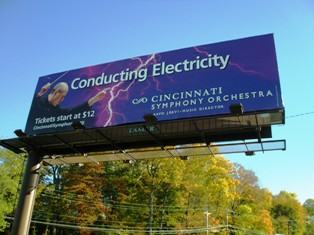
Mozart, Mahler Make Perfect Pairing

If I had been able to choose, I doubt I could have come up with a more fitting program for my last concert reviewing music director Paavo Järvi and the Cincinnati Symphony for the Cincinnati Post.
Järvi, who after this weekend, doesn't conduct the CSO until January (the Post closes Dec. 31) paired Mozart and Mahler Thursday evening at Music Hall.
Mozart was the Piano Concerto No. 23 in A Major, a sunny work with a touch of melancholy in the slow movement. Soloist was Argentine pianist Ingrid Fliter in a sublime CSO debut.
The neurotic, chronically unhappy Mahler was represented by his 80-minute Symphony No. 7, which ends in a state of wild euphoria.
Fliter, 34, is a patrician artist. Winner of the 2006 Gilmore Artist Award (highly prestigious because you can't compete for it), she shaped the opening Allegro in exquisitely calibrated tones It made one think of the Golden Mean, the "just right" middle between two extremes.
The F-sharp minor Adagio came across more wistful than impassioned, though the tender second theme, announced by the CSO, had that much more impact. She delivered volleys of notes in the perky finale, winning a warm reception from the crowd.
Mahler's Seventh couldn't have been a greater contrast. Composed in 1904-05 during a turbulent time in his life, it brooks no "means," golden or otherwise. The composer takes the listener on a roller coaster ride, a journey through a night of fitful dreams to a sunlit awakening. It has been called "Song of the Night" because of its three inner movements, "Nachtmusik" I and II ("Night Music") and Scherzo: "Schattenhaft" ("Shadowy"). Despite the work's relative unfamiliarity -- it's the least performed of Mahler's nine symphonies and hasn't been heard at the CSO since 1988 -- the Thursday crowd couldn't help being swept off their feet by it.
The performance was uneven, particularly at the beginning, though the CSO players warmed to their task. Their obvious enjoyment (everyone has something exciting to do) and Järvi's inspired conducting augur better readings when the concert repeats.
It opened with a commanding solo by Peter Norton on euphonium, answered shrilly by clarinets, oboes and trumpets. This devolved into an angry march that drifted occasionally into quiet moments reminiscent of the last day on earth in Mahler's "Resurrection" Symphony (No. 2). "Nachtmusik" I opened with horn calls so like the buoyant Scherzo of Schumann's "Rhenish" Symphony No. 3 that the woodwind bird calls, sharp, stinging effects and funereal touches, like cowbells against contra-bassoon, brought an ecological disaster to mind.
The central Scherzo was a house of horrors, snarly and unsanitized, Järvi reveling in every creepy color and gesture. "Nachtmusik" II brought better dreams, opening with a downward-falling "answer" to an unspoken, doubtless romantic question. Principal hornist Elizabeth Freimuth delivered jocular solos and there were swoony passages tinged with mandolin (Paul Patterson) and guitar (Frank Ferrara).
The really unleashed movement was the finale, where Mahler stirs in Wagner (Overture to "Die Meistersinger" and Fafner the dragon from "Siegfried"), Gilbert and Sullivan ("Mikado," complete with cymbal and bass drum), snatches of schmaltz and the ever obsessive march. Toward the end, it sounded as if it would break into Mendelssohn's "Wedding March," or perhaps John Williams' "Star Wars."
In his six years with the CSO, Järvi has raised the bar on its achievement and brought a new sense of excitement to CSO performances. A wide dynamic range, vivid, transparent colors and no-quarter emotional appeal make the new CSO billboards in town (Järvi conducting against an electrical storm) right on target. The orchestra is in good hands.
Repeats are 11 a.m. today, 8 p.m. Saturday at Music Hall